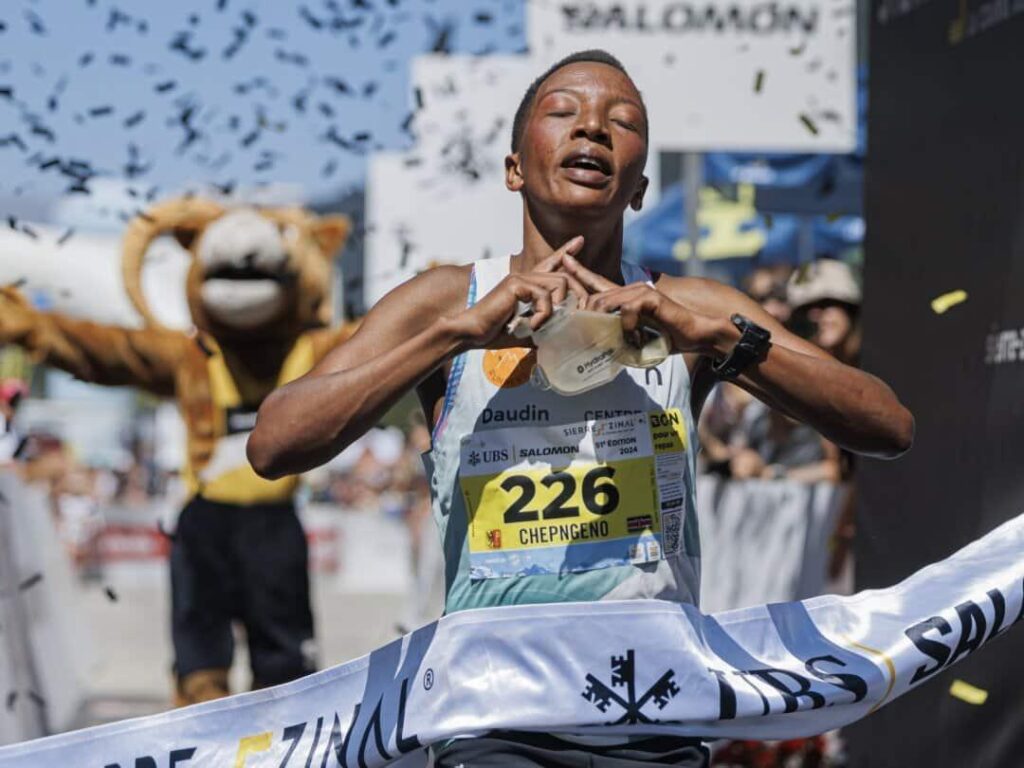Kenyan trail runner Joyline Chepngeno, celebrated for her victories at two of the world’s most prestigious mountain races-the UTMB OCC and Sierre-Zinal-has been handed a doping ban, shocking the ultrarunning community. The announcement, confirmed by the relevant anti-doping authorities, casts a shadow over her impressive achievements and raises pressing questions about the integrity of elite trail running. This article delves into the details surrounding Chepngeno’s suspension and its implications for the sport.
Joyline Chepngeno Faces Doping Sanctions Following Dominant UTMB OCC and Sierre-Zinal Victories
Joyline Chepngeno, whose recent performances at the UTMB OCC and Sierre-Zinal races captivated the trail running community, now faces serious repercussions following a doping investigation. The athlete, previously celebrated for her exceptional endurance and speed on some of the toughest trails in the world, has been found in violation of anti-doping regulations by the relevant sports authorities. This revelation has sent shockwaves through the trail running circuit, casting a shadow over her impressive victories and prompting a wider discussion on doping controls within ultra-endurance events.
Key details surrounding the sanctions include:
- Substance detected: A banned performance-enhancing drug identified in post-race testing
- Sanction: Temporary suspension from competition pending further investigation
- Impact: Results from UTMB OCC and Sierre-Zinal subject to review, potential disqualification
| Race | Date | Original Finish Position | Sanction Status |
|---|---|---|---|
| UTMB OCC | August 2023 | 1st | Under Review |
| Sierre-Zinal | August 2023 | 1st | Under Review |
The governing bodies have emphasized their commitment to upholding fairness and integrity within the sport, ensuring that all athletes compete on a level playing field. Chepngeno’s case highlights ongoing challenges in anti-doping efforts, particularly in endurance disciplines where physical limits are pushed to extremes. Fans and fellow competitors alike await further updates as the investigation progresses.
Implications of Chepngeno’s Ban on Trail Running and Competitive Integrity
Chepngeno’s doping ban sends shockwaves through the trail running community, casting a shadow over achievements once celebrated worldwide. This violation not only tarnishes her legacy but also raises questions about the reliability of race results, particularly in prestigious events like the UTMB OCC and Sierre-Zinal, where she dominated. Organizers and fans alike are now grappling with the challenge of preserving competitive integrity while reassessing the performances of top athletes. The scandal underscores the urgent need for enhanced anti-doping measures to safeguard the sport’s reputation and ensure a level playing field for all competitors.
In response to this controversy, several key actions are anticipated by governing bodies and event organizers, including:
- Increased frequency and rigor of drug testing during and outside competitions
- Implementation of educational programs targeting young and amateur trail runners
- Revision of ranking and prize distribution policies to address potential past infractions
- Public transparency regarding doping cases to rebuild trust among fans and sponsors
| Impact Area | Potential Outcome |
|---|---|
| Athlete Morale | Heightened scrutiny and pressure to comply with strict regulations |
| Race Credibility | Temporary loss of public confidence, prompting reforms |
| Sponsorship Deals | Increased caution from brands, potential withdrawal of support |
| Community Engagement | Renewed efforts to promote clean sport ethos |
Strengthening Anti-Doping Measures in Trail Running to Preserve Fair Competition
The recent suspension of Joyline Chepngeno has sent shockwaves through the trail running community, highlighting the urgent need for more rigorous anti-doping protocols. As one of the sport’s most celebrated athletes, Chepngeno’s victories at prestigious events like UTMB OCC and Sierre-Zinal made her a role model for many. This case underscores the fact that even at the highest levels, the temptation and opportunity for doping remain significant challenges. To safeguard the integrity of trail running, authorities must invest in enhanced testing methods and increase the frequency of both in-competition and out-of-competition controls.
Key strategies moving forward should include:
- Expansion of random drug testing across a broader pool of runners, not just elite athletes.
- Implementation of biological passports to monitor athletes’ biomarkers over time, detecting anomalies suggestive of doping.
- Stronger education programs targeting upcoming runners to foster a culture of clean competition from the grassroots level.
| Anti-Doping Measure | Purpose | Impact |
|---|---|---|
| Random Testing | Surprise Sample Collection | Increases Accountability |
| Biological Passport | Long-Term Monitoring | Detects Peak Abnormalities |
| Athlete Education | Awareness & Prevention | Reduces Violations |
To Conclude
The athletics community continues to grapple with the implications of Joyline Chepngeno’s doping violation following her victorious performances at the UTMB OCC and Sierre-Zinal races. As the governing bodies conduct further investigations and determine appropriate sanctions, the integrity of competitive trail running remains a central concern. This development serves as a reminder of the ongoing challenges in maintaining fair play within the sport. Runner’s World will keep readers informed as more details emerge.

